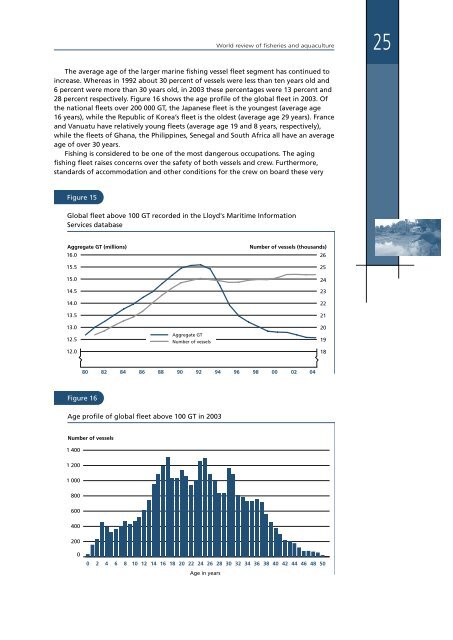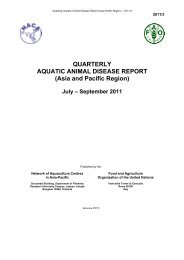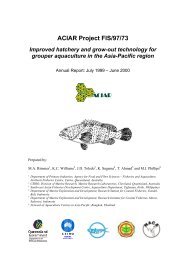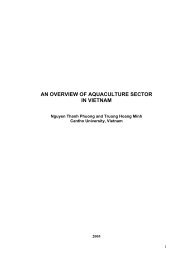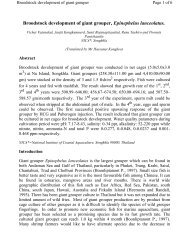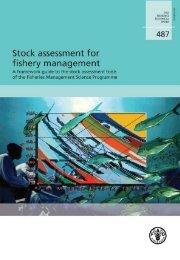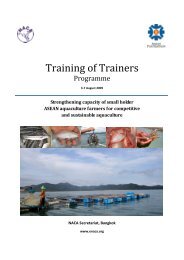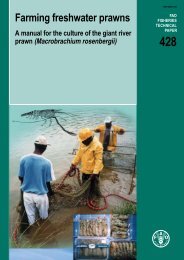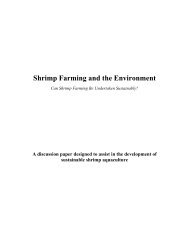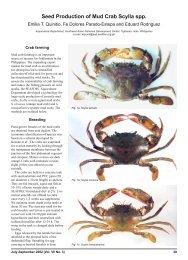State of World Fisheries and Aquaculture 2004 - Library
State of World Fisheries and Aquaculture 2004 - Library
State of World Fisheries and Aquaculture 2004 - Library
Create successful ePaper yourself
Turn your PDF publications into a flip-book with our unique Google optimized e-Paper software.
<strong>World</strong> review <strong>of</strong> fisheries <strong>and</strong> aquaculture<br />
25<br />
The average age <strong>of</strong> the larger marine fishing vessel fleet segment has continued to<br />
increase. Whereas in 1992 about 30 percent <strong>of</strong> vessels were less than ten years old <strong>and</strong><br />
6 percent were more than 30 years old, in 2003 these percentages were 13 percent <strong>and</strong><br />
28 percent respectively. Figure 16 shows the age pr<strong>of</strong>ile <strong>of</strong> the global fleet in 2003. Of<br />
the national fleets over 200 000 GT, the Japanese fleet is the youngest (average age<br />
16 years), while the Republic <strong>of</strong> Korea’s fleet is the oldest (average age 29 years). France<br />
<strong>and</strong> Vanuatu have relatively young fleets (average age 19 <strong>and</strong> 8 years, respectively),<br />
while the fleets <strong>of</strong> Ghana, the Philippines, Senegal <strong>and</strong> South Africa all have an average<br />
age <strong>of</strong> over 30 years.<br />
Fishing is considered to be one <strong>of</strong> the most dangerous occupations. The aging<br />
fishing fleet raises concerns over the safety <strong>of</strong> both vessels <strong>and</strong> crew. Furthermore,<br />
st<strong>and</strong>ards <strong>of</strong> accommodation <strong>and</strong> other conditions for the crew on board these very


